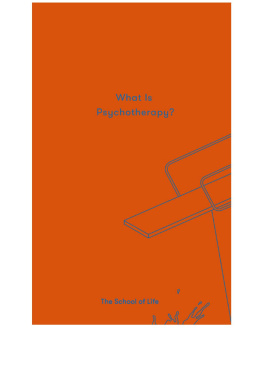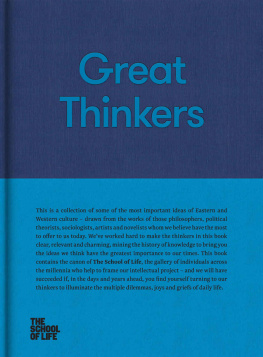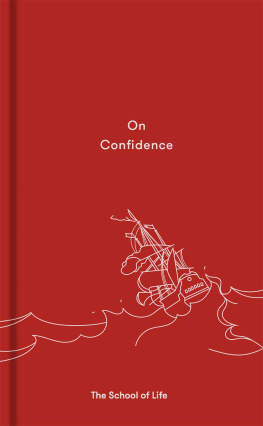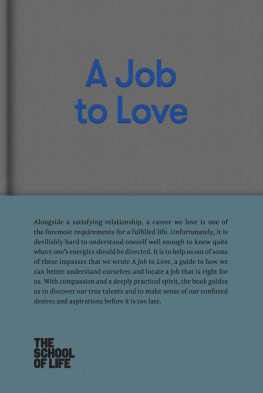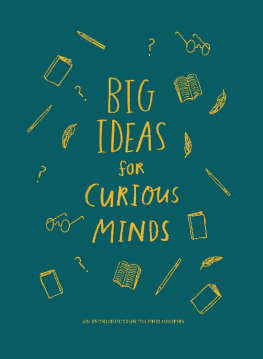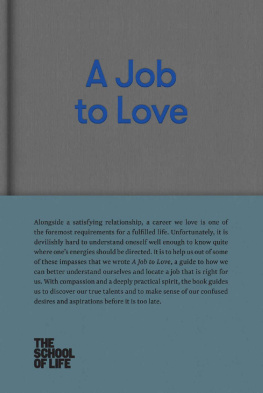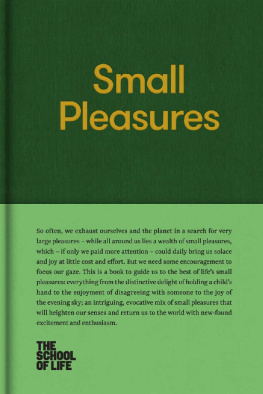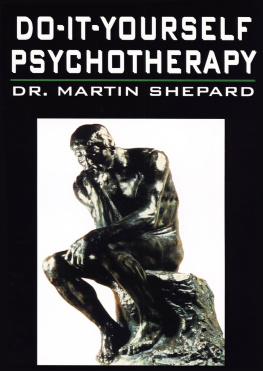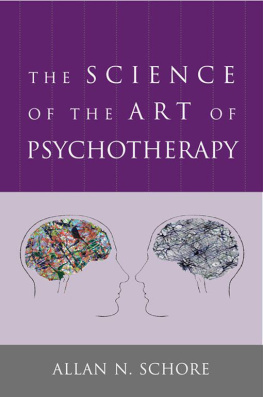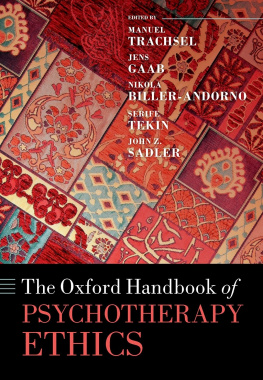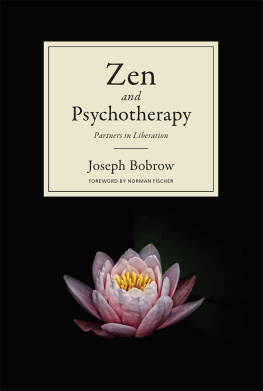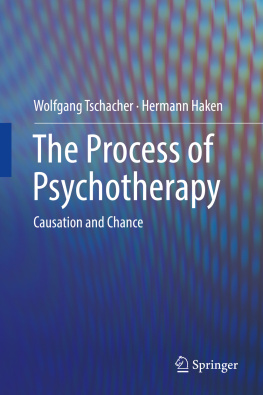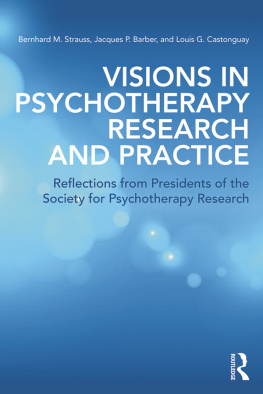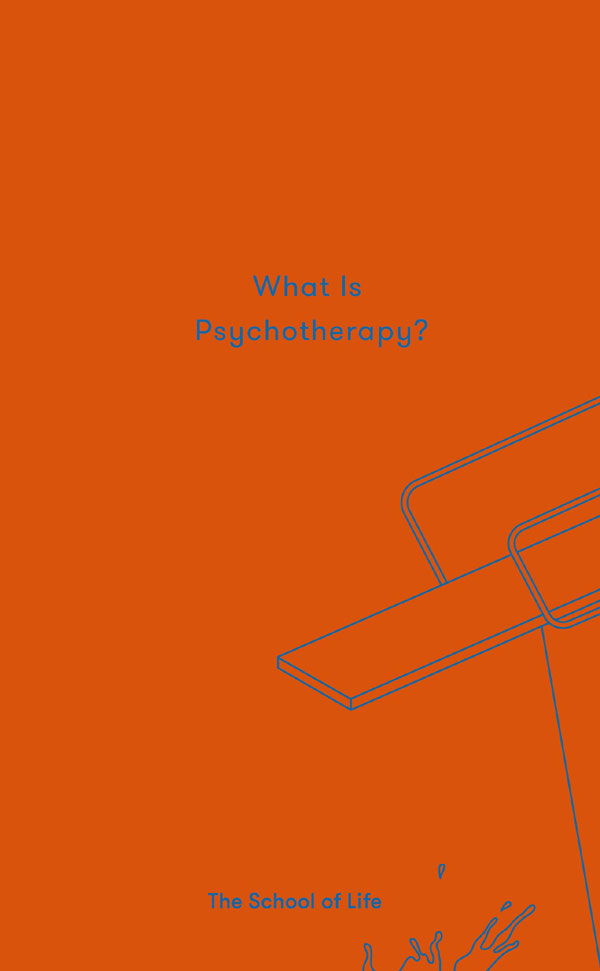What Is Psychotherapy?
Other books in this series:
Why You Will Marry the Wrong Person
On Confidence
How to Find Love
Why We Hate Cheap Things
Self-Knowledge
The Sorrows of Work
The Sorrows of Love
What Is Culture For?
What Is Psychotherapy?
The School of Life
Published in 2018 by The School of Life
70 Marchmont Street, London WC1N 1AB
Copyright The School of Life 2018
Designed and typeset by Marcia Mihotich
Printed in Latvia by Livonia Print
All rights reserved. This book is sold subject to the condition that it shall not be resold, lent, hired out or otherwise circulated without express prior consent of the publisher.
A proportion of this book has appeared online at thebookoflife.org
Every effort has been made to contact the copyright holders of the material reproduced in this book. If any have been inadvertently overlooked, the publisher will be pleased to make restitution at the earliest opportunity.
The School of Life offers programmes, publications and services to assist modern individuals in their quest to live more engaged and meaningful lives. Weve also developed a collection of content-rich, design-led retail products to promote useful insights and ideas from culture.
www.theschooloflife.com
ISBN 978-1-9999179-8-2
10 9 8 7 6 5 4 3 2 1
Contents
I
Introduction
Psychotherapy is one of the most valuable inventions of the last one hundred years, with an exceptional power to raise our levels of emotional well-being, improve our relationships, redeem the atmosphere in our families and assist us in mining our professional potential.
However, psychotherapy is also profoundly misunderstood and the subject of a host of unhelpful fantasies, hopes and suspicions. Its logic is rarely explained and its voice seldom heard with sufficient directness.
This book attempts to explain psychotherapy: what the needs are in all of us to which it caters; the methods by which it addresses these needs; and what the outcome of a therapeutic intervention could ideally be.
The book reflects a fundamental belief of the School of Life that psychotherapy is the single greatest step any of us can take towards self-understanding and fulfilment. A course of therapy stands to render us slightly less angry, self-defeating, unconfident, lost and sad.
This is a guide to the purpose and meaning of psychotherapy.
II
Why We Need Therapy
A primal wound
The origins of our need for psychotherapy lie deep in our pasts. No one intends for this to happen, but somewhere in childhood, our trajectory towards emotional maturity will almost certainly have been impeded. Even if we were sensitively cared for and lovingly handled, we can be counted upon not to have passed through our young years without sustaining some kind of deep psychological injury what we can term a primal wound.
Childhood opens us up to emotional damage in part because, unlike all other living things, Homo sapiens have an inordinately long and structurally claustrophobic pupillage. A foal can stand up thirty minutes after it is born. By the age of eighteen, a human will have spent around 25,000 hours in the company of its parents. A female grouper mother will unsentimentally dump up to 100 million eggs a year in the sandy banks off the north Atlantic seaboard, then swim away without seeing a single one of her offspring again. Even the blue whale, the largest animal on the planet, is sexually mature and independent by the age of five.
But for our part, we dither and linger. It can be a year until we take our first steps and two before we can speak in whole sentences. It is close to two decades before we are categorised as adults. In the meantime, we are at the mercy of that highly peculiar and distorting institution we call home, and its even more distinctive overseers, our parents.
Across the long summers and winters of childhood, we are intimately shaped by the ways of the big people around us: we come to know their favourite expressions, their habits, how they respond to a delay, the way they address us when theyre cross. We know the atmosphere of home on a bright July morning and in the afternoon downpours of mid-April. We memorise the textures of the carpets and the smells of the clothes cupboards. As adults, we can still recall the taste of a particular biscuit we liked to eat after school and know intimately the tiny sounds a mother or father will make as they concentrate on an article in the newspaper. We can return to our original home for a holiday when we are parents ourselves and find despite our car, responsibilities and lined faces that we are eight again.
During our elongated gestation, we are at first, in a physical sense, completely at the mercy of our caregivers.
We are so frail, we could be tripped up by a twig; the family cat is a tiger. We need help crossing the road, putting on our coat, writing our name.
Our vulnerability is also emotional. We cant begin to understand our strange circumstances: who we are; where our feelings come from; why we are sad or furious; how our parents fit into the wider scheme; why they behave as they do. We necessarily take what the big people around us say as an inviolable truth; we cant help but exaggerate our parents role on the planet. We are condemned to be enmeshed in their attitudes, ambitions, fears and inclinations. Our upbringing is always particular and peculiar.
As children, we can brush off very little of this. We are without a skin. If a parent shouts at us, the foundations of the earth tremble. We cannot tell that some of the harsh words were not really meant, had their origins in a difficult day at work, or are the reverberations of the adults own childhood; it feels as if an all-powerful, all-knowing giant has decided, for good (if unknown) reasons, that we are to be annihilated.
Nor can we understand, when a parent goes away for the weekend, or relocates to another country, that they didnt leave us because we did something wrong or because we are unworthy of their love, but because even adults arent always in control of their own destinies.
If parents are in the kitchen raising their voices, it can seem as though these two people must hate one another inordinately. To children, an overheard altercation (with a slammed door and swear words) may feel catastrophic, as though everything safe will disintegrate. There is no evidence in the childs grasp that arguments are a normal part of relationships; that a couple may be committed to a life-long union and at the same time forcefully express a wish that the other go to hell.
Children are equally helpless before their parents idiosyncratic ideologies. They cant understand that an insistence that they not mix with another family from school, or that they follow particular dress codes, or hate a given political party, or worry about dirt or being less than two hours early for a flight, represents a partial understanding of priorities and reality.
Children dont have a job. They cant go elsewhere. They have no extended social network. Even when things are going well, childhood is an open prison.
As a result of the peculiarities of the early years, we become distorted and unbalanced. Aspects within us start to develop in odd directions. We find that we cant easily trust, or become unusually scared around people who raise their voices, or cant tolerate being touched. No one needs to do anything particularly shocking, illegal, sinister or wicked to us for serious distortions to unfold. The causes of our primal wound are rarely outwardly dramatic, but their impact can often be momentous and long-lasting. Such is the fragility of childhood that nothing outwardly appalling need have happened to us for us to wind up profoundly scrambled.

